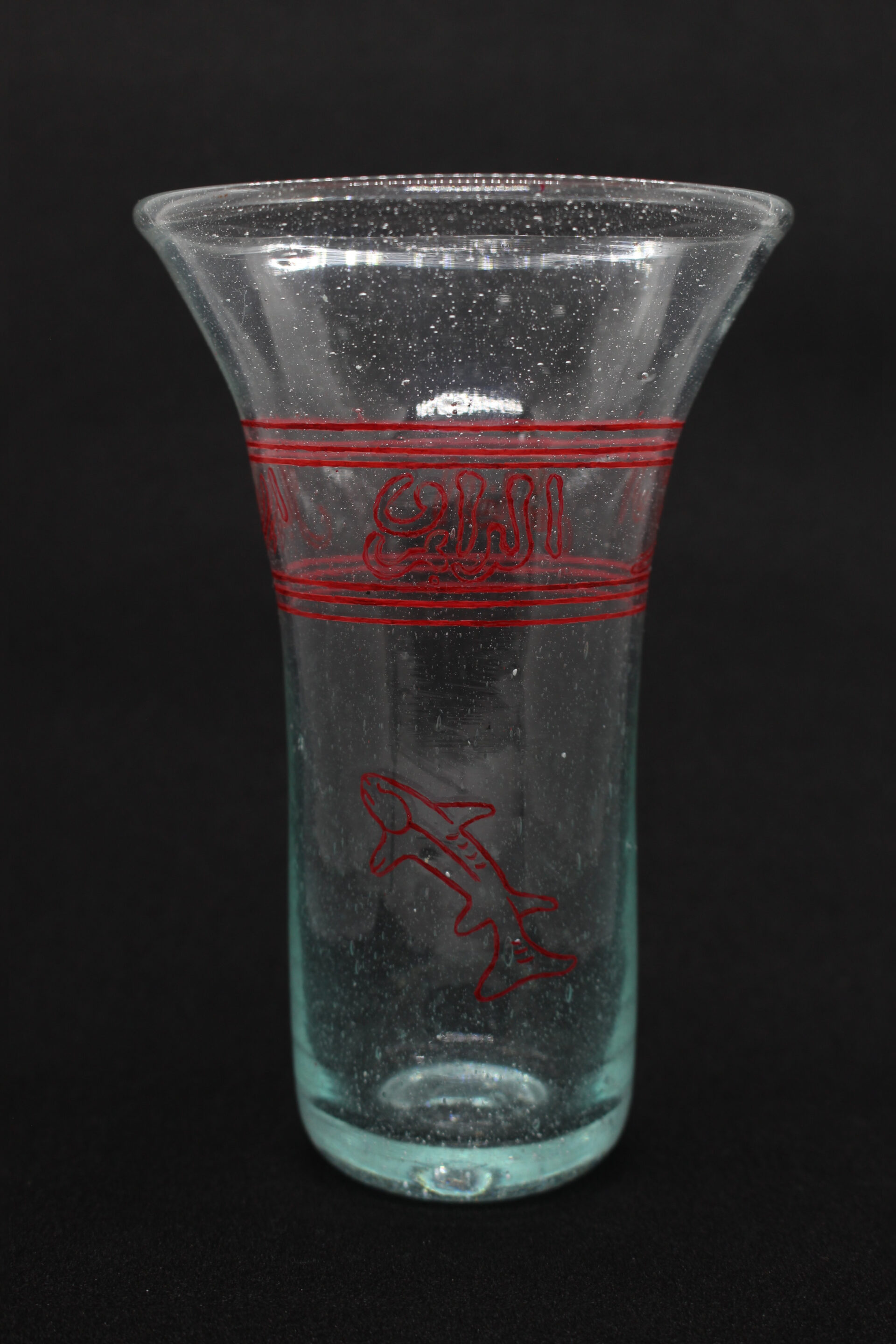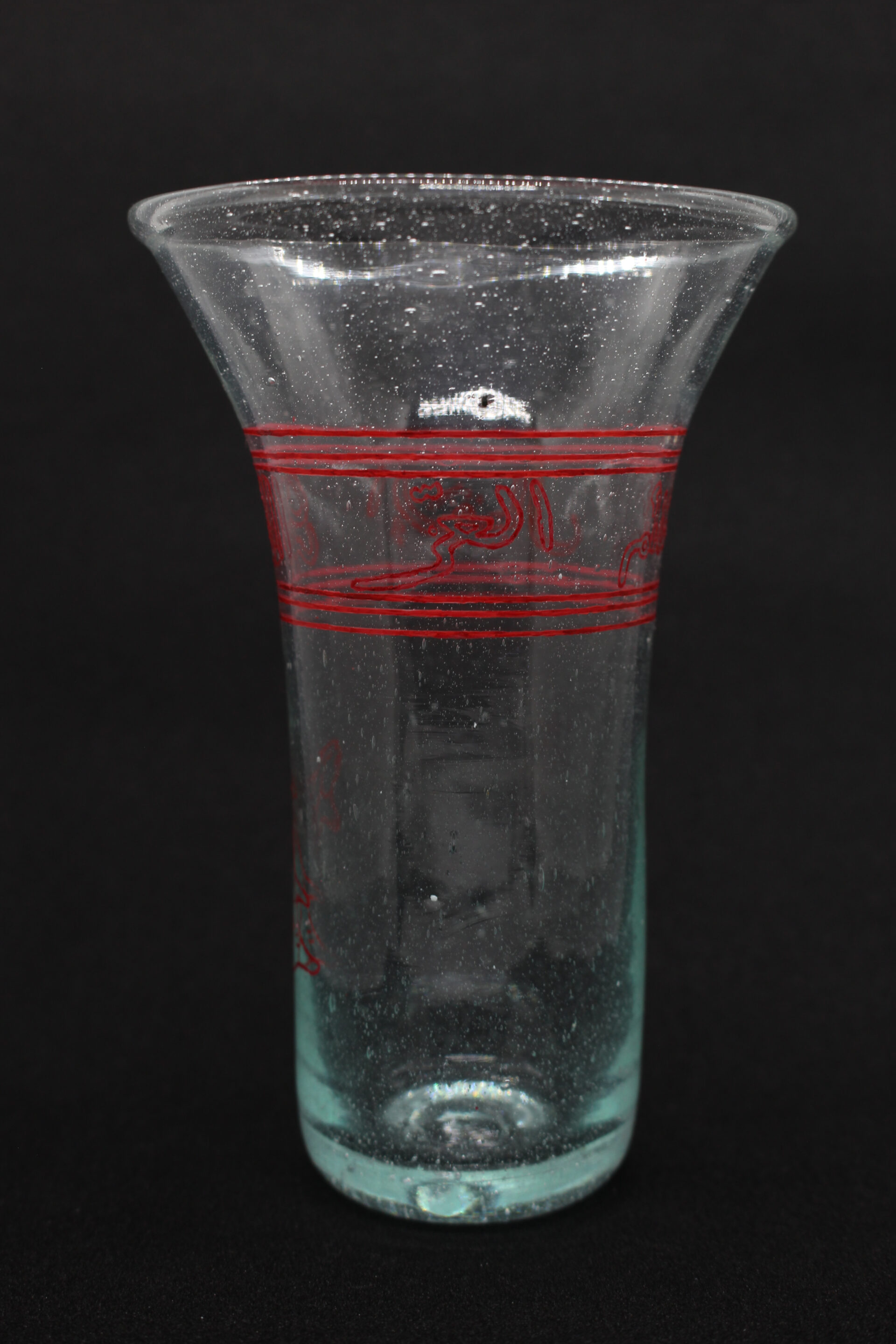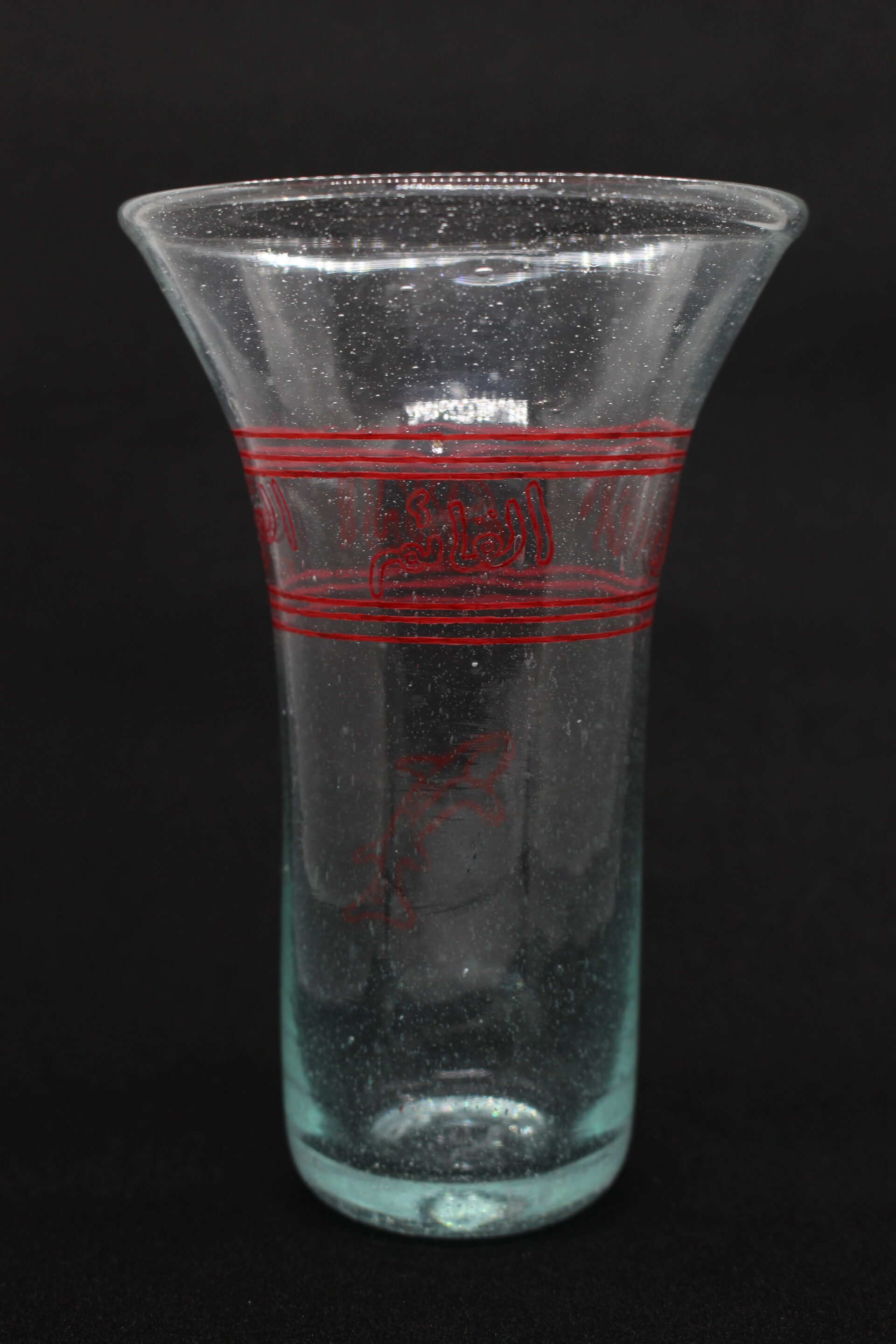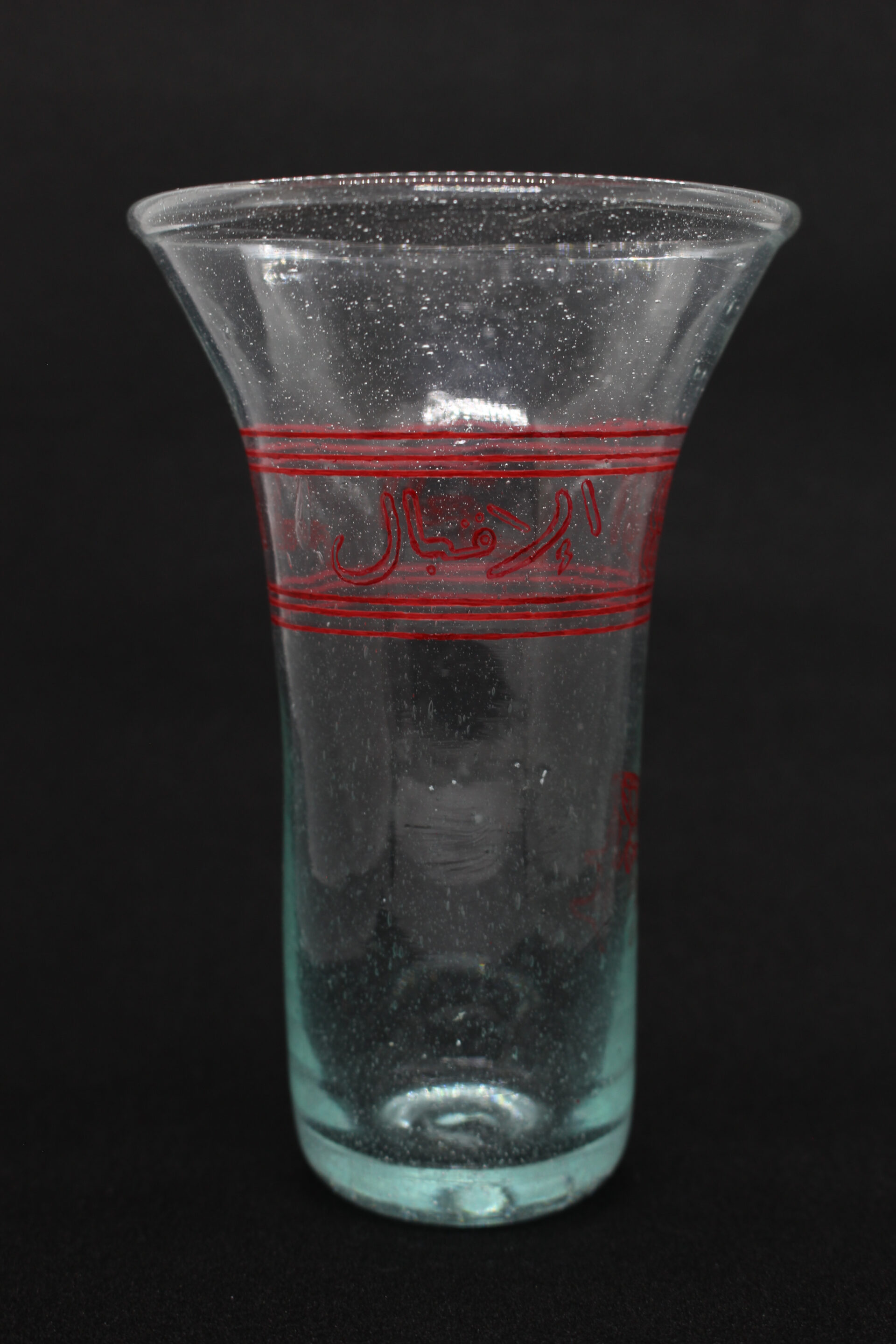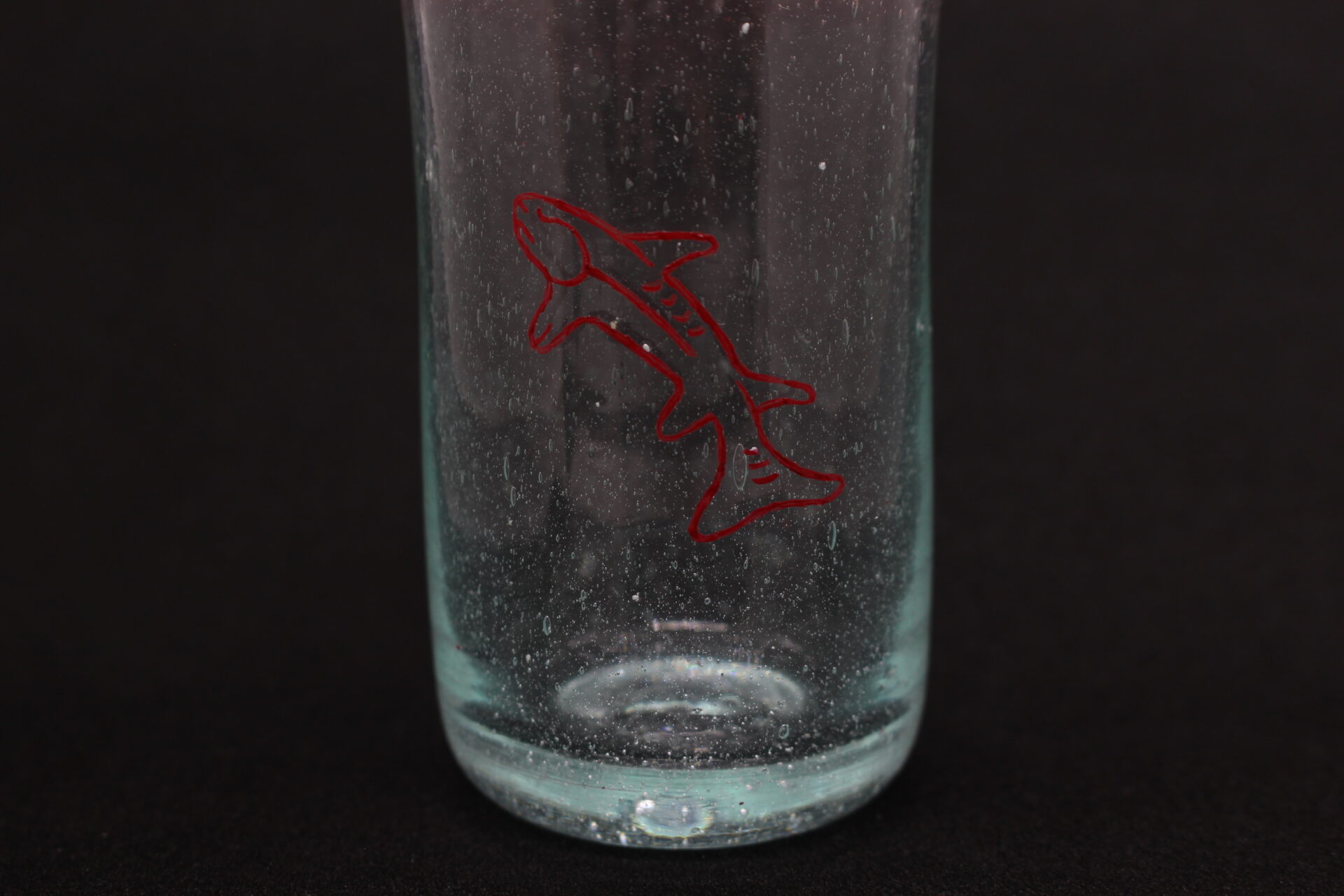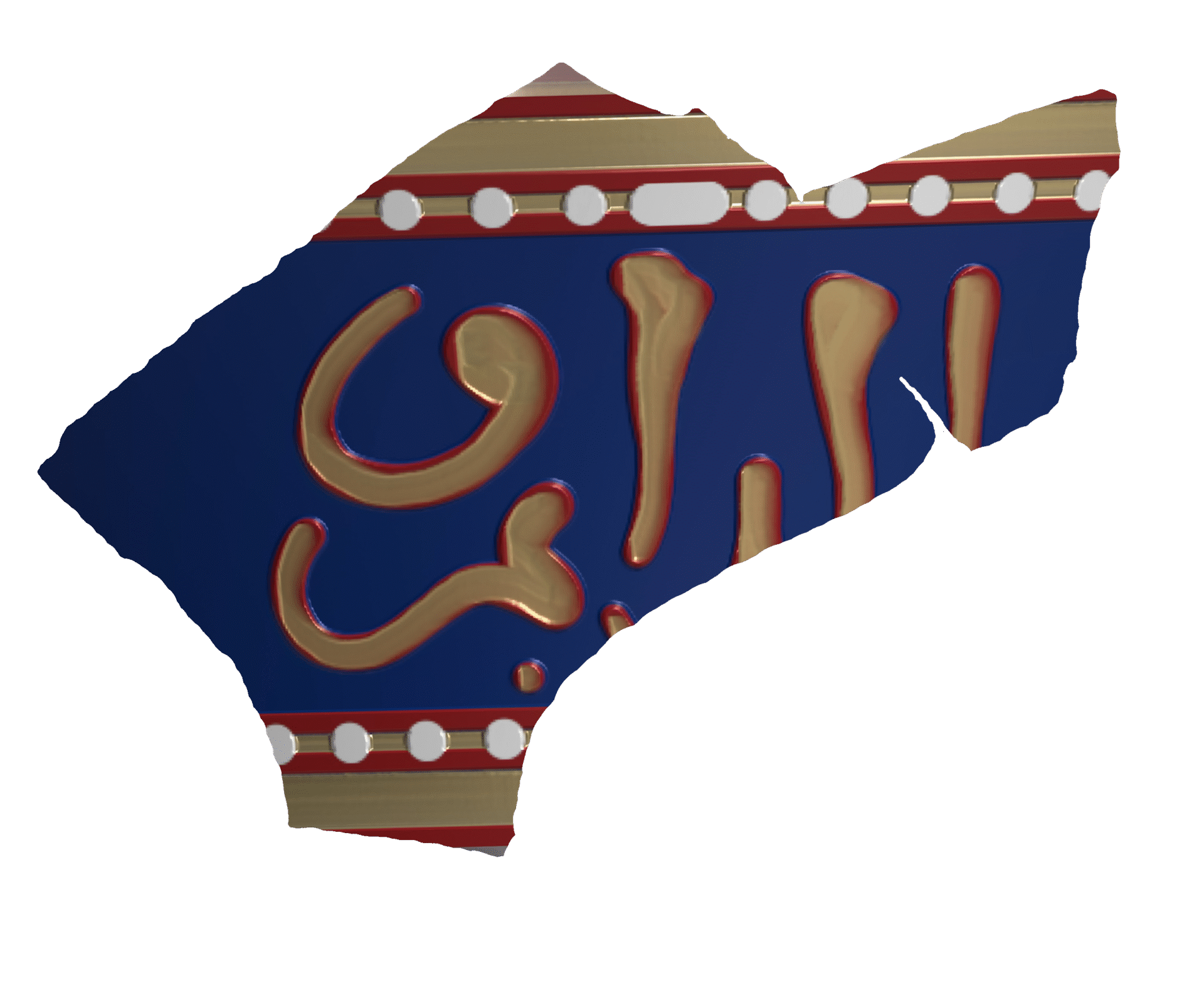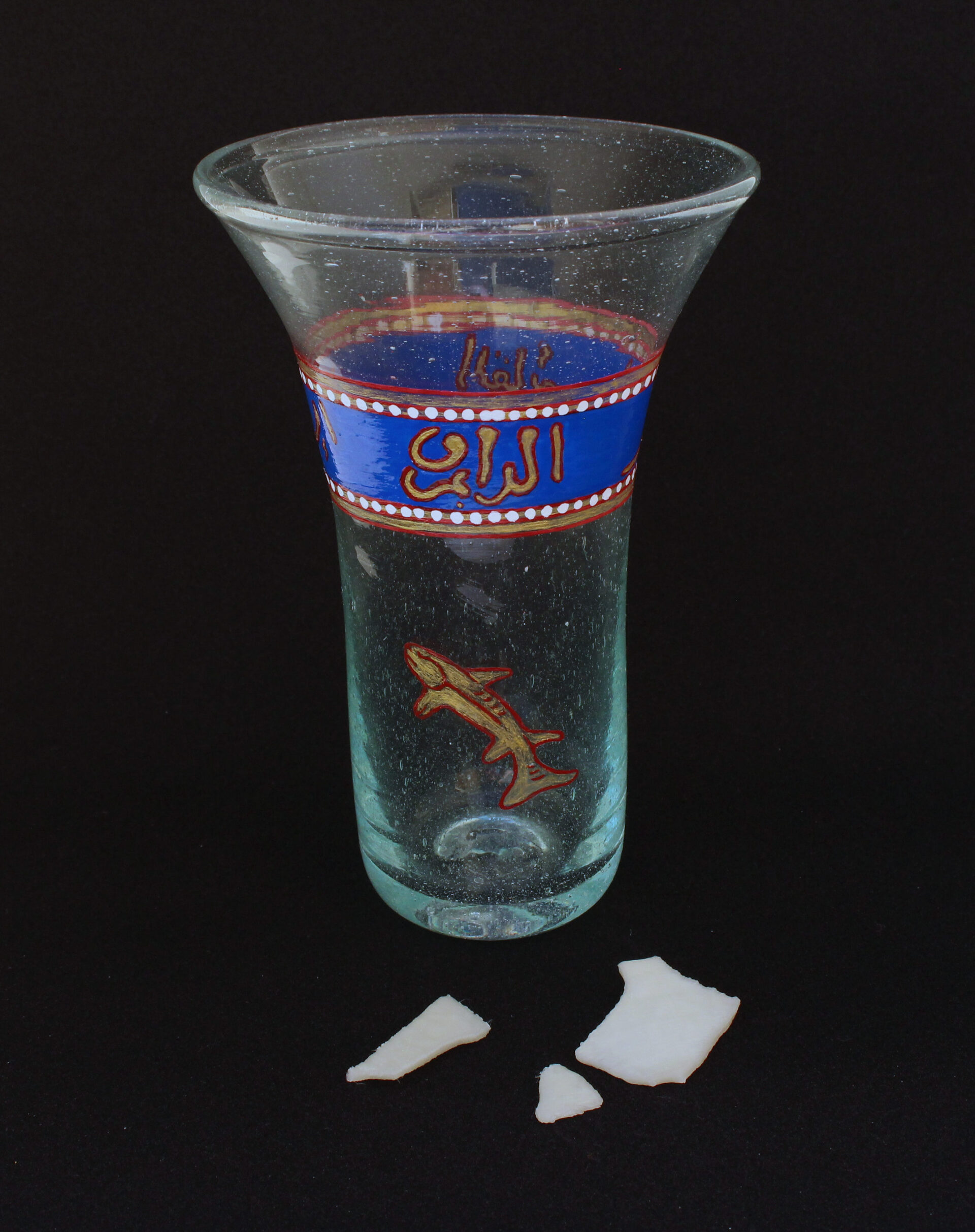فن الروابط الأبدية
Arabic
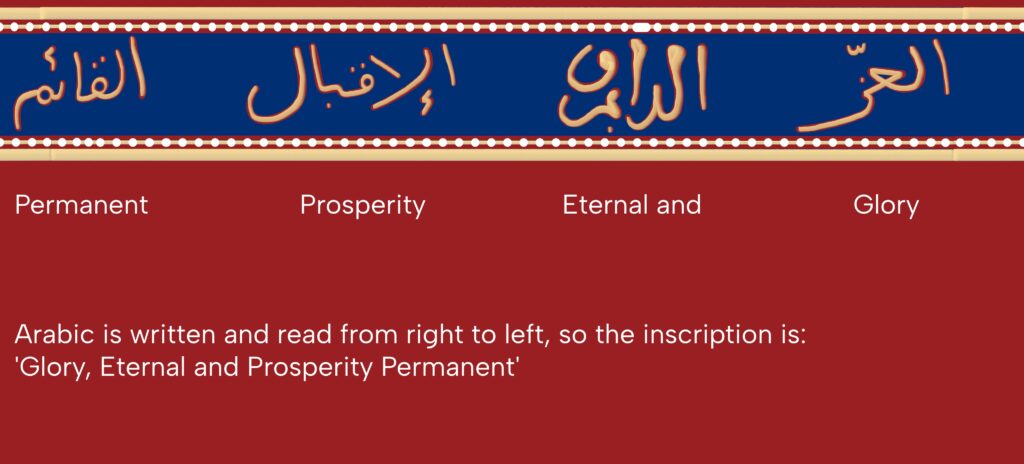
Glass Vessel Fragment A and B can be combined to read part of the word ‘eternal’ alongside ‘and’.
Initial thoughts were that the word ‘eternal‘ may have been an extract from the Qur’an however after further research and ongoing dialogues with experts in Islamic art, including Dr Mariam Rosser-Owen, curator in the Middle Eastern section at the Victoria and Albert Museum, London, this is unlikely for a drinking vessel that would have been handled frequently. During the Mamluk period, it was not uncommon for such items to hold wine. Therefore like other documented examples, the letters would form a complete sentence of a generic blessing conveying good health. There are instances where a dedication is made to a specific person through the inscription band, such as a Sultan; however, the ones I have encountered do not include ‘eternal’ or related words.
Professor Emilio Molina Lopez who consulted on Eternal Connections mentioned that it was common for words to rhyme with similar meanings, like a verse of a poem. He translated the sentence that may have matched the fragments to ‘Eternal Glory and permanent prosperity‘ based on research. The order of this text in Arabic is slightly different as seen in the image above. Other variations may exist; this is one concept with more words that could follow.
It is worth noting that the Arabic script uses an abjad writing system rather than an alphabet. Some Arabic terms will not have an English equivalent and vice versa. You can learn more at https://www.baytalfann.com/post/the-arabic-abjad.
Glass Vessel Fragment C above doesn’t join with the other two but may still come from the same beaker or belong to a set since there are documented examples of varying sizes.
Glassblowing
The factory is in Cairo, Egypt, next to the Mamluk Mosque of Qaytbay in The City of the Dead.
Khaled’s sons, Mohamed and Ahmed, crafted these vessels. The footage shows the glassblower using my 3D-printed prototype to reproduce the shape and size of the object.
Seif El Rashidi, Director of The Barakat Trust, facilitated this.
Video credit: Leila Said
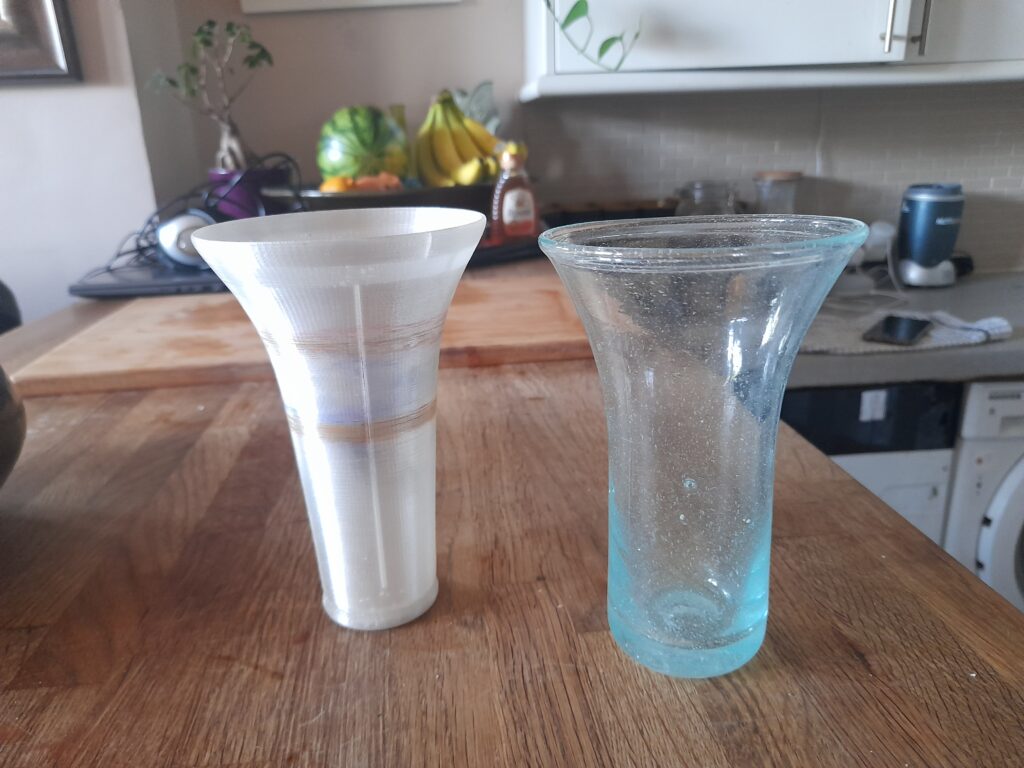
Studio Shots and Render
